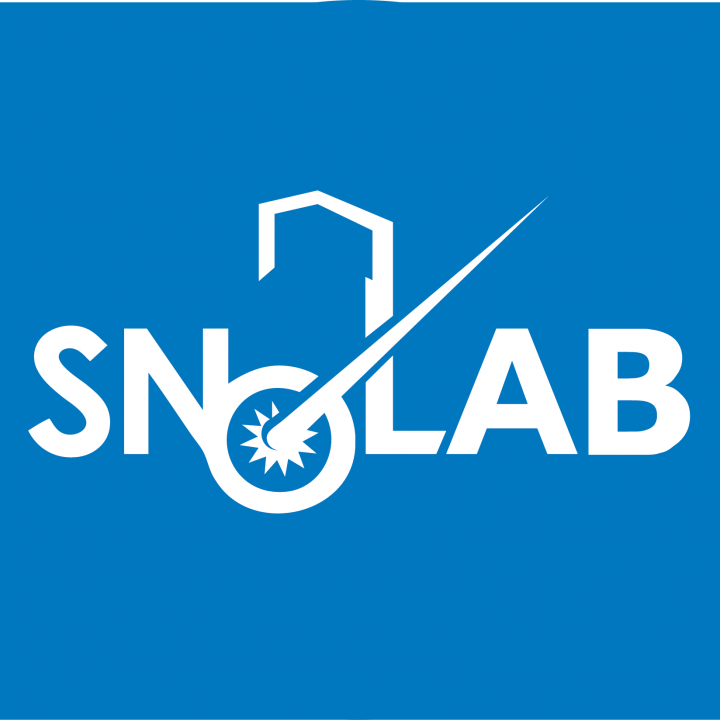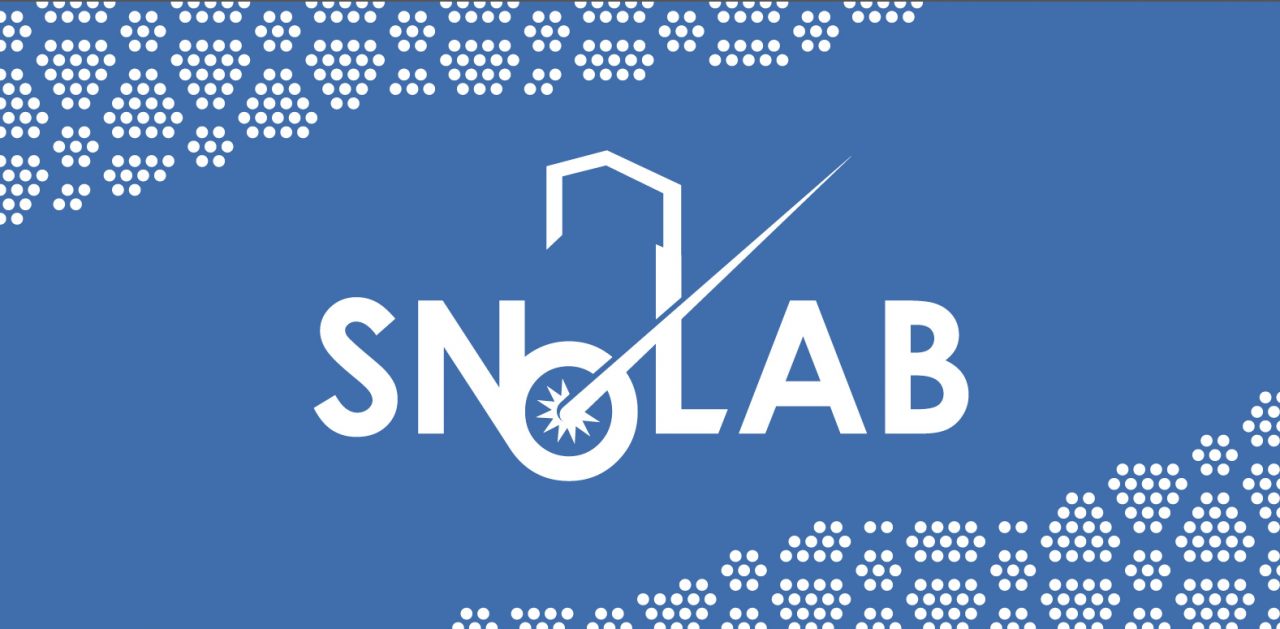News & Events
SNOLAB Seminars
June 26th – 28th
Date: June 26, 2023
Time: 11:30am - 2:00pm

SNOLAB runs a virtual series of research seminars bringing together experimental and theoretical physicists from across Canada and around the world to present their most recent research. View the SNOLAB Seminars on the SNOLAB website
To receive reminders and connection info or to be added to the SNOLAB Seminar Series email list, contact Andy Kubik (andy.kubik@snolab.ca) and/or Aleksandra Bialek (aleksandra.bialek@snolab.ca) and/or Pietro Giampa (pietro.giampa@snolab.ca).
Monday, June 26
11:30 AM EDT: Mark Ward (Queen’s University) “Detectors and Dark Matter”
Abstract:
The search for Dark Matter is a story of not only people and collaborations but the development of detector technology. Today we have developed technology to aid the search using ionization, light and even heat as we push the envelope in an attempt to drive down cross-section sensitivity curves. We will take a look at the history of Dark Matter, the evidence that compels the search and how one goes about designing detectors with the goal of achieving greater sensitivity.
1:00 PM EDT: Brian Morissette (SNOLAB) “Moving oversize material underground at SNOLAB & Critical lift vs Engineered lift.”
Abstract:
I will review some of the more challenging items brought underground slung below the cage, why is a critical lift not an engineer lift, not every equipment move requires a sledgehammer.
Tuesday, June 27
10:30 AM EDT: Shaun Hall (SNOLAB) “The Future of Chemistry at SNOLAB and in Particle/Astrophysics”
Abstract:
SNOLAB is home to what can only be described as interdisciplinary science. At all scales, from experiments looking into the nature of the smallest components of our universe to those seeking to understand the cosmological scale, SNOLAB brings together people from diverse fields to add their expertise to our endeavours. A major and ever-growing, scientific partner to the particle and astrophysics is Chemistry. Whether it is the production of ultrapure materials, purification processes, shielding materials, or simply understanding the material necessary to enable searched for dark matter, Chemistry is there… and the future of particle physics, astrophysics, and the growing field of ‘Chemistry Applied to Particle and Astrophysics’ looks extremely bright. From the utilization of supercritical fluids for the removal of radionuclides to the ultra-high purity production of crystals for use in solid-state detectors to understanding the degradation pathways of liquid scintillators to the truly remarkable recent use of quantum chemistry calculations to probe the nature of dark matter itself, this nascent subfield of chemistry has an incredible amount to offer. Beyond research, there is also the critical question: how can we ensure that non-chemists can perform high-quality, accurate, and precise chemical and chemical engineering work at SNOLAB? This can only be answered by providing exceptional knowledge and understanding in chemistry at all levels through local mentoring and education. Chemistry provides not only the basis upon which SNOLAB can excel, with the purest, most well-understood materials and safest procedures, but can lead in the development in this new field, leading to a future in particle and astrophysics brimming with possibilities.
1:00 PM EDT: Tom Sonley (SNOLAB) “Detecting Supernova Neutrinos with HALO”
Abstract:
On February 24, 1987, 3 neutrino detectors across the earth simultaneously detected bursts of neutrinos well above background levels. Approximately 3 hours later, a supernova explosion was observed in the Large Magellanic Cloud. The 25neutrino interactions observed from this event, Supernova 1987A, confirmed the theoretical models of supernova explosions and provide a number of constraints on cosmological models. Theorists predict that there should be a supernova within theMilky Way 2-3 times per century. HALO is a low-maintenance, high-uptime detector designed specifically to wait for the 10-second burst of neutrinos from this next nearby supernova. This talk will describe the physics of supernova neutrino creation as well as how HALO is able to detect these neutrinos in a way that is complementary to other larger multi-purpose neutrino detectors.
Wednesday, June 28
9:30 AM EDT: Christine Kraus (SNOLAB) “Investigating the Nature of the Neutrino: SNO+ at SNOLAB”
Abstract:
Neutrinos are messengers that can help us learn about astronomical processes and objects as well as the nature of the neutrino itself. They might very wellhold the key to finding out more about their mass and the way our Universe works. SNOLAB is a world-leading underground particle astrophysics laboratory located at VALE’s Creighton mine in Sudbury, Ontario.
The SNO+ experiment is the successor to the Sudbury Neutrino Observatory, and the detector is filled with ~780 tons of liquid scintillator (LAB) to create a multipurpose neutrino detector. The primary goal of SNO+ is to address the nature of the neutrino via the search for neutrinoless double beta decay by loading the liquid scintillator with naturalTellurium. The physics program also includes solar neutrinos, antineutrinos from reactors and the Earth and supernova neutrinos, should there be a galactic supernova.
1:00 PM EDT: Nasim Fatemighomi (SNOLAB) “Controlling and Measuring radon ingress in a tonne scale double beta decay experiment.”
Abstract: The SNO+ experiment is a tonne scale neutrino less double beta decay experiment. Radon control and mitigation is vital for the experiment to reach its physics goal. In this talk, I will first describe SNO+’s novel cover gas system. I then cover the assay technique used in order to measure Rn-222 concentration in SNO+ cover gas and cavity. Toward the end of my talk, I will give examples of how in my opinion, we can improve controlling and screening radon at SNOLAB.

